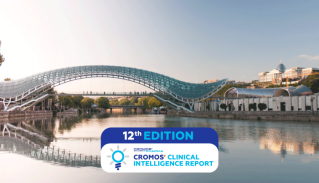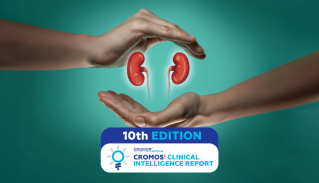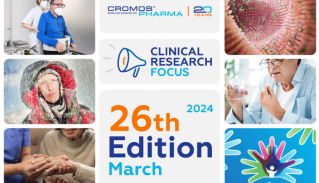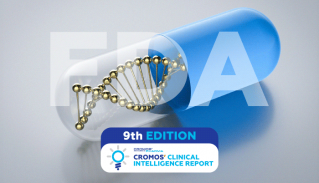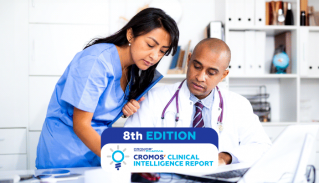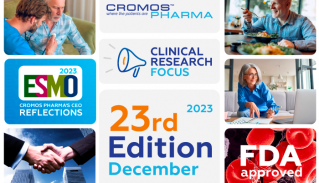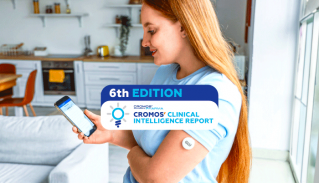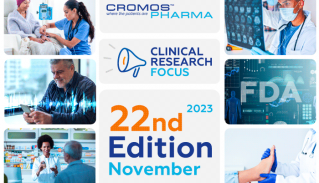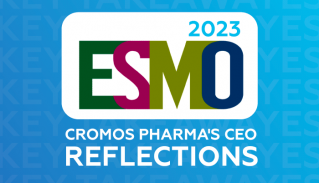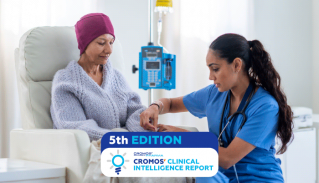
Cromos Pharma committed to supporting clinical research into Alzheimer’s disease
This September Cromos Pharma is highlighting World Alzheimer’s Month.
Alzheimer’s Disease (AD) is the most well-known form of dementia. Dementia is the collective name for progressive brain conditions affecting memory, thinking, behavior and emotions. Dementia affects almost 50 million people worldwide. While aging is a major risk factor for dementia, it also affects people under 65 years. There are over 100 forms of dementia. AD accounts for 50-60% of all cases.
Clinical trials are vital to finding new treatments
At the present time there is no cure. Current treatments act to temporarily improve symptoms but drug companies and researchers around the world are actively searching for treatments that may slow or stop the progression AD.
Reducing the risks of AD and dementia
We now know that there are identifiable and modifiable risks associated with AD and dementia[i]. These include low physical activity, high blood pressure, poor diet and obesity, smoking and high alcohol consumption as well as depression and low social contact. Taking steps to address these risk factors across the life course is recognized as possible way of reducing your risks of developing dementia.
Taking care of your brain health
Dr Sabina Brennan, neuroscientist and brain health expert has the following tips for reducing your risks:
1. Get physically active
Physical exercise has a direct benefit on brain structure & function. It stimulates neuroplasticity and creates a nourishing environment for new brain cells. It is associated with better cognitive function and reduced stress, anxiety and depression
2. Stay socially engaged
Just 10 minutes social interaction can boost brain performance. Social isolation is associated with cognitive impairment and the risk to health is comparable to the risks associated with smoking and obesity.
3. Go Mental
Challenging your brain, learning new things and seeking out novelty are critical for brain health. These activities promote neuroplasticity, help build brain and cognitive reserves and maintain brain volume.
4. Love your heart
What’s good for your heart is good for your brain. You brain needs a constant supply of oxygen and nutrients, so a healthy cardiovascular system is critical to brain performance.
5. Cherish sleep
When you sleep your brain has a job of work to do. New information that you have taken in has to be sorted, discarded or consolidated as memories to free up space to take in new information and learn new things the following day. Your brain also clears metabolic waste and toxins while we sleep.
6. Choose Balance
Your brain thrives on regularity, so feed it, water it, and rest it at regular intervals. Also fund balance between work and play, technology and nature, being social and being alone, water and alcohol etc.
7. Manage Stress
Stress is not bad in and of itself, but poorly managed chronic stress changes the brain structurally and functionally in ways that impair our ability to learn and remember.
8. Be present
Focusing on what you are doing while you are doing it is a natural antidote to stress. Being in the moment also keeps negative thoughts and memories at bay and reduces anxiety, stress and depression
9. Smile
Boosts the growth of brain cells, makes your brain more resilient, releases feel good hormones, lowers blood pressure, boosts immune function, protects against stress, anxiety, and depression.
Cromos Pharma and Alzheimer’s Disease
Cromos Pharma is proud to support clinical research aimed at finding new treatments and maybe one day a cure for AD and other dementias.
Find out more about how we can support your next clinical project by emailing bd@cromospharma.com
More information:
[i] https://www.thelancet.com/article/S0140-6736(20)30367-6/fulltext


